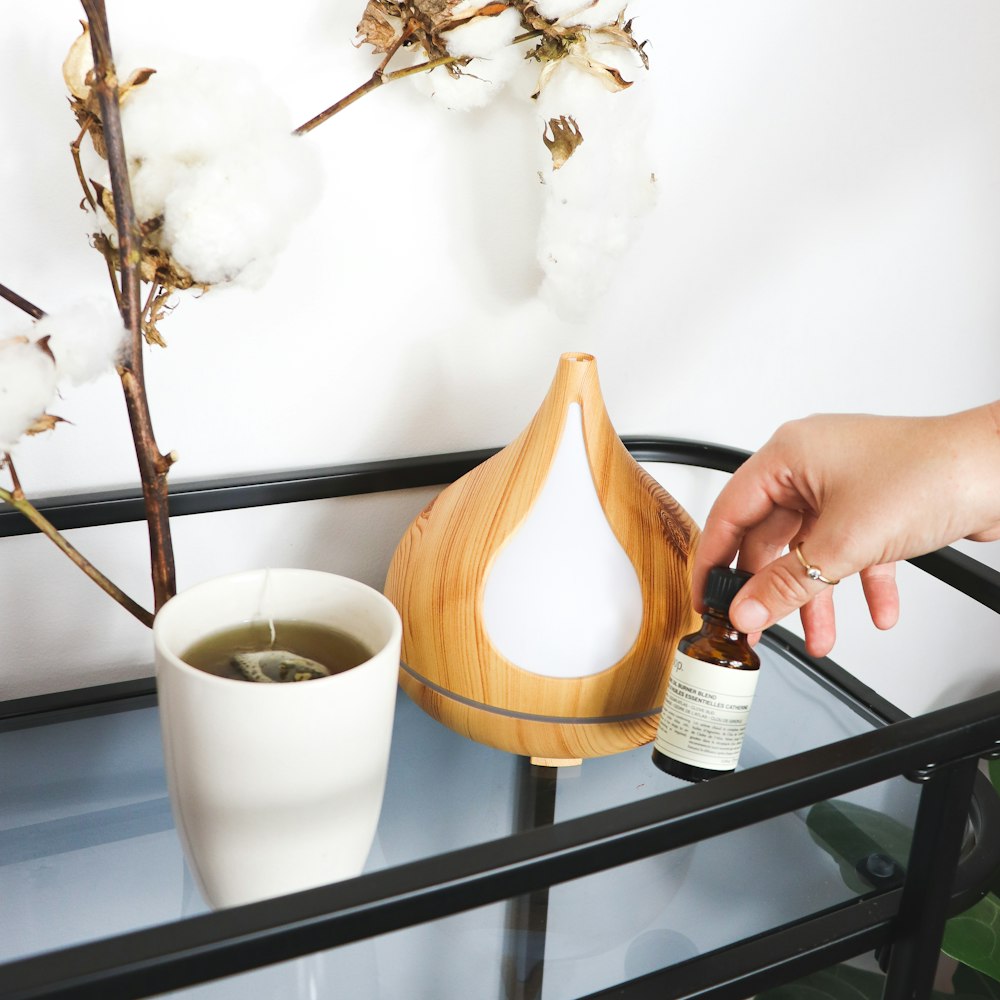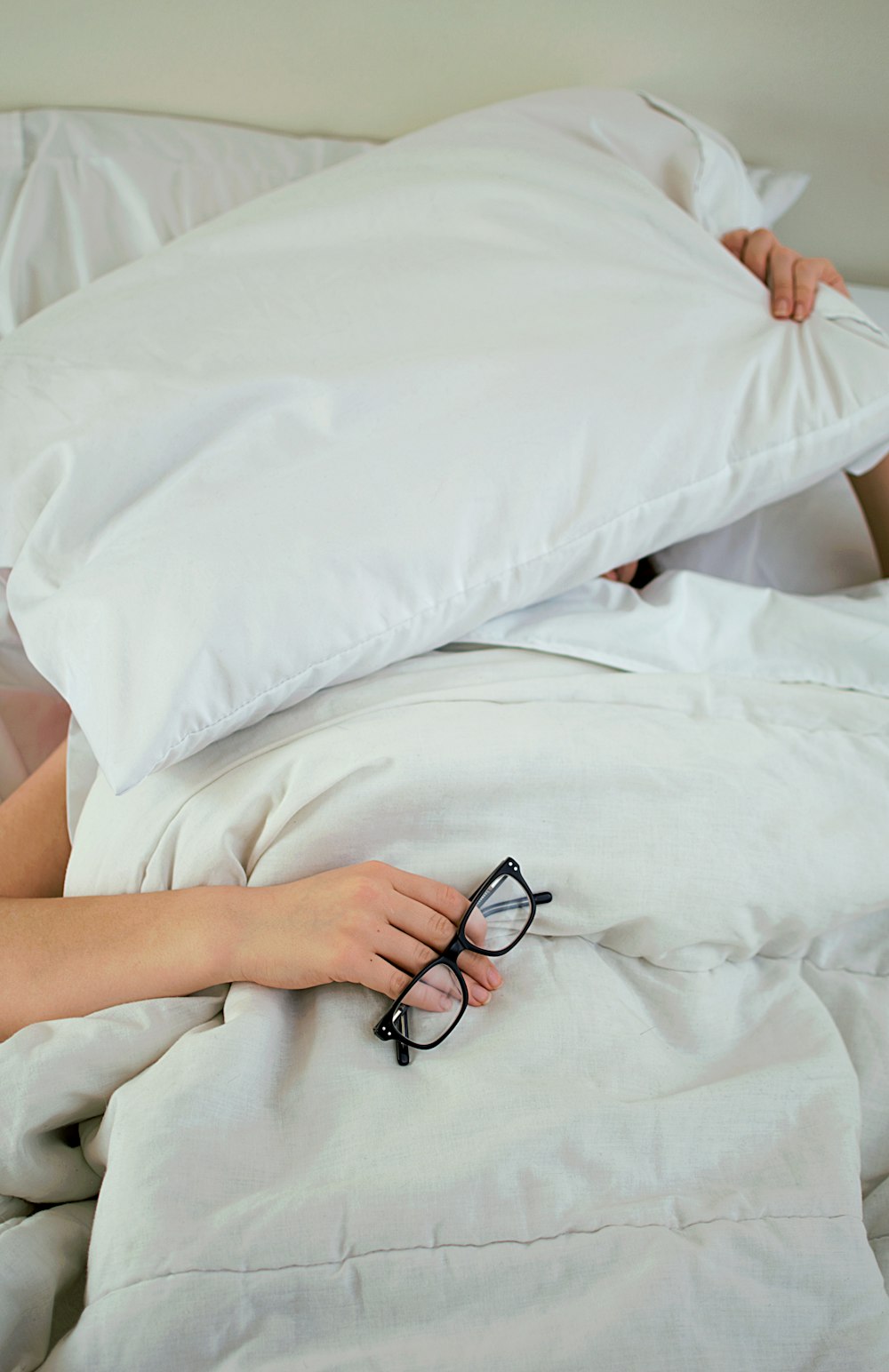How to Feel Refreshed in the Morning
If you're a morning person, getting up early in the morning may sound like a routine. But, if you are like most Canadians, the morning buzz from an alarm clock mostly seems like a signal to hit the snooze button and a cue to hide under the sheets again. Many of us do that, and we all know that getting out of bed can be challenging as it sometimes feels like gravity is way stronger under the bed. But, here's what you should know, rising up from deep slumber each day does not have to be torture.
The secret? Making a few tweaks to your evening or morning routines and adhering to some healthy habits so you can feel more energized and alert when your alarm clock sounds. Here you'll find some strategies on how to feel refreshed in the morning.
Strategies on how to feel refreshed in the morning
Do you want to wake up feeling refreshed? Or are you just tired of hitting the snooze button every day when it's time to wake up? Here's how you can wake up feeling refreshed and, of course, always on time.
1. Get the right amount of sleep the night before (Yes, obviously)
In an ideal world, people always get the recommended seven to eight hours of sleep at night. But, recently, in the business of this modern world, getting adequate sleep is sometimes impossible! Some even say that twenty-four hours a day is not enough to do all things needed to be done. While there are other important tasks to accomplish, such as working or doing chores to keep the home organized, resting and getting a good night's rest shouldn't be shoved aside. Sleeping for up to eight hours isn't laziness, but it is the body's way of recuperating from working too hard all throughout the day.
Also, if you lack sleep, it becomes harder for your body to be alert when you wake up. Why? Dr. Meeta Singh, an expert on sleep medicine at Henry Ford Health System, says that when you sleep, there is less blood flow in our brains. As you wake up from sleeping, alertness lags behind as the consciousness immediately returns. And the more you lack sleep, the more alertness or reaction time lags behind. So, if you want to feel refreshed, remember that the right amount of sleep is the first thing that you need.
Follow the recommended sleep duration per age and wake up each morning feeling ready to seize the day.
2. Help your circadian rhythm
Our bodies have a built-in internal process/system that helps us to regulate our sleep-wake cycle. This system is called the natural circadian rhythm. It repeats roughly every twenty-four hours and is guided by our genes, sleep habits, and other factors such as the presence of light or darkness.
Unless you are working nights, the best way to help your natural body clock is to step into the sunlight after getting up. This way, you are cueing your body that it is time to wake up. If you work nights and the sun is out, the best you can do is mimic sunlight by turning the lights on. You can also keep your room dark while you sleep during the day to tell your circadian rhythm that its time to sleep.
3. Avoid using gadgets before and after sleeping
We live in an era where it's hard for some of us to stay away from mobile phones, tablets, and other gadgets. But, know that as tempting as they can be, using the phone at night while trying to sleep isn't a good idea at all. In fact, you may find that using gadgets at night can cause a lack of sleep.
Furthermore, reaching for your mobile phone or other gadgets in the morning as soon as you wake up can strain your eye and possibly derail your whole day. Social media sites can be an evil time-sucking machine as it can steal all your time from healthier morning routines such as exercise and breakfast. Not only that, because spending too much time on the phone can even leave you rushing to catch the bus!
If you have lots of time, you can use it (of course!), but still, something like meditation, journaling, or reading a book could be better!
4. Have a solid, healthy breakfast meal
Eating a solid or big breakfast in the morning doesn't only help in boosting metabolism or stabilizing weight. A big healthy breakfast can help you stay alert all throughout the day as the nutrients in the food gives you energy. It will also keep you from sluggishness and help you feel fueled up.
If your daily fix is just a cup of tea or coffee, that could make you feel lethargic and drowsy once the effects of caffeine wear off. Just remember that your body needs vitamins, minerals, and other nutrients to function well. Never ever skip the first meal of the day, especially if you are bound to do a lot of activities later that day. If you are in a hurry, try to eat at least toasted bread and eggs, oatmeal with fruits, or a solid meal that can give you a mix of carbohydrates, proteins, and fats.
Get a headstart on all the activities you have for the day by having a solid, healthy breakfast meal!
5. Engage in exercise
Here we go again with exercise. Although some may say exercise is tiring, research says it can help people feel more energized. In fact, it stimulates the production of mood-boosting hormones, improves circulation, and contributes to alertness.
The only caveat with exercise is that if you sleep for only 4 hours or less, skipping on an exercise routine may be acceptable… given the fact that you are replacing it with extra hours of sleep. But still, exercising for a couple of minutes is possible at any time of the day!
6. Make up your bed
You probably heard this a thousand times, "find time to make up your bed." Yes, it is a simple task, but its a task to start the day! Want to know the importance of making up the bed in the morning? Watch this video clip, which focuses on a speech given by Admiral William H. McRaven addressing graduates of the University of Texas in 2014. It's all about straightening up the sheets, pillows, and bed covers, but its a very powerful insight into how simple things can make a big difference.
Finished watching the video? Or not? It's okay if you didn't. But here's the gist, tidying up the bed after getting up in the morning can give you a sense of accomplishment and keep you moving. Imagine ticking one chore off your list early on the day!
7. Avoid hitting the snooze button
Besides getting adequate sleep, Dr. Singh believes that repeatedly clicking the snooze button when trying to wake up can actually make it challenging to stay alert and feel awake. She says that consistently waking up and hitting the snooze button for ten minutes every morning can add up to hours and hours of disturbed sleeping patterns over the course of a week.
8. Listen to some lively music and find your morning groove
Whatever genre of music you like, go ahead and tune in! Find some lively tunes and pump up the volume a bit. Some find pop music helpful, as well as disco and electronic. But it's all up to you, actually. A good old country or folk song will do, and as an added bonus, you'll burn some unwanted fats if you dance to it!
9. Do something that gives you energy and make you feel happy
Whether its a cat that jolts you out of the bed or a dog that runs to your bedroom every morning, savour it! These small things that can make you smile in the morning can help you feel refreshed all day! If you don't have pets, you can engage in any activity such as taking an invigorating shower or drinking a refreshing drink. So, starting tomorrow, try to do something that can energize you and bring you joy!
10. Try aromatherapy
Aromatherapy isn't just for relaxation and inducing sleepiness. Depending on the scent or essential oil, it can get you energized and awaken your sleepy head.
Here are some of the essential oils and refreshing scents that you can use:
- bergamot
- clove
- lemon
- orange
- patchouli
- peppermint
- pink grapefruit
- spearmint
Just be sure that using scents and essential oils is not contraindicated to your health because some people have allergies to certain smells.
11. Maintain healthy blood sugar levels
The energy that we use to perform day to day tasks comes from the sugar converted by the specialized cells of our bodies into a more usable form. However, too much sugar in the blood (those isn't needed by the body right away) gets stored in cells for later use. This excess sugar in the blood can be harmful. On the other hand, when the level of the blood sugar drops too low, the body won't have the fuel it needs to be energized.
The trick here is to maintain healthy blood sugar levels. There are many ways to do it. You can monitor your diet for one and take supplements like Blood Sugar Support, as long as your primary care provider permits.
12. Tug your hair a bit
If you find it hard to roll out of bed or even open your eyes despite your best efforts, gently pull your hair. Besides giving you an eye-opening wake-up call; it can also aid in stimulating the blood flow to your scalp.
Too sleepy to do it? Maybe you can ask someone on your behalf. Of course, tell them not to go overboard, or else, you'll end up in a fight. Though it might also be useful to wake your senses up, eh? Kidding aside, give 'early-morning-hair-pulling' a try.
13. Wash your face with cold water
If you are too sleepy and need a quick fix to snap you out of dreamland, try splashing your face with cold water. Using cold water to wash your face can not only wake you up but may also benefit you for tightening the pores. Besides, cold water can feel refreshing on the skin.
14. Get out of your comfortable jammies
If you are going to stay in bed all day and yet need to stay alert and awake the whole day, be sure to get out of your comfortable clothes. We all know how good it feels to be in jammies all day, and the more comfortable you are, the more chances of you feeling drowsy, be tempted to head to the bedroom and sleep.
15. Be sure to drink water before your favourite caffeinated beverage
Drinking a glass or two of water (warm or cold) can help hydrate your cells and speed up your metabolism. Caffeinated beverages such as black tea and coffee can make you urinate frequently, and if you do not drink water until later, you may become dehydrated.
Dehydration is more common during summer months when the temperature is warmer. It may also cause confusion, dizziness, and easy fatigability — signs and symptoms that you definitely do not want to feel and experience for the remainder of your day.
16. Avoid drinking alcohol to get yourself to sleep
A glass of red wine or your favourite tequila may help you feel sleepy when you are overly alert at night, but you don't want to rely on it every single night. Like sleep medications, you may develop some kind of tolerance to alcohol. Once it happens, you'll find yourself increasing your alcohol intake just to fall asleep. And in time, alcohol will permanently interrupt your sleep cycle. It can prevent you from reaching the stage of sleep called REM, also known as the deep stage of sleep.
17. Play some relaxing music to help you sleep at night
If you cannot keep your phones away, put it to good use. You can download sleep and relaxation apps that can play sound waves or chirping birds to help you feel relaxed when you hit the bed. Some apps even have notepads to help you track your sleeping habits, and others allow setting reminders and alarms—all of which can aid in keeping your sleeping pattern right.
18. Choose an alarm sound that will make you want to wake up
It may be nice to hear and wake up to the sound of chirping birds or your favourite gentle tune, but do you think it could really make you feel alert or at least want to get out of your comfy bed?
If you are not sure of it, maybe it is better for you to pick an alarm sound that can make you feel wanting to get up. You can even choose an annoying sound to make you turn it off and not want to hear it again as much as possible.
Just make sure not to choose the same blaring sounds of police sirens, fire trucks or fire alarms, and ambulance. Keep the volume at appropriate levels as well, and never put it on loudspeakers. Not only will it wake you up, but probably the entire neighbourhood. No doubt.
19. Put your alarm clock far away from you
Here's one neat trick, put your alarm clock somewhere far from you, like the opposite side of your bed, the adjoining bathroom, or above a dresser (wherever you can still hear it). Why? Well, if it's far and annoying enough when it goes off, it is very unlikely for you to hit the snooze button and go back to sleep because by then, you've walked a couple of steps just to turn it off. And of course, you'll probably feel awake after getting the alarm clock off, just make sure you don't fall while you are sleepwalking towards the alarm clock.
20. Can't sleep? Don't limit yourself to counting sheep.
If you can't seem to fall asleep, don't linger in bed and settle to counting sheep. Despite all the buzz on how effective it is, it seldom works.
Instead, find something else to do, something tiring or any busy task like sorting mails, folding the laundry, or reading a book—a real book and not on your ebook reader or any electronics. Once you start to get drowsy, go back to bed and hope to fall asleep.
21. Use the right mattress for your bed
If you want to sleep well crashing on whatever surface is closest is not a good idea. To sleep more comfortably, invest in a mattress that is best for your sleep needs. For instance, if you have back problems, maybe you could get a mattress for posture or back support. As long as you have the budget, you can get one that can help you sleep well.
Also, according to professionals Better Sleep Foundation, it is important to continue evaluating your mattress’ condition every seven years. This means that if your bed doesn’t support your sleep, replace it. There are a lot of options to choose from, from memory foams, waterbeds, innersprings, and other kinds of stuff. So, if you can set a time, visit a mattress store and check different styles of mattresses.
22. Choose a better pillow
Sleeping ain't gonna feel comfortable without the appropriate pillow for your head or back or legs. A bad pillow (those over fluffy ones and the opposite kind) can even contribute to a lousy, back-hurting sleep.
Your pillow doesn't need to be too expensive. Just find one that can keep your neck rested and your head in a comfortable position. Besides promoting a good posture, it will prevent you from getting headaches and stiff necks in the morning.
No idea on how to pick the perfect pillow for a good night’s sleep? It’s easy. There are even dozens of pillow shops online that provide buyers guides for pillows. To save you time, here’s what you should do:
Determine what kind of sleeper you are. Do you sleep on the back, on your stomach, or on your side? Once you know your sleeping style, match your sleeping position with the appropriate pillow type. The general recommendation is as follows:
For back sleepers:
You may need a flatter pillow on your head to keep it properly aligned with the neck. Unless you have neck pains or back problems, a softer pillow is also a good choice so it can follow the contour of the body. If you have lower back pains or muscle aches anywhere, get a pillow that can provide additional support to the body.
For side sleepers:
A firmer pillow may benefit side sleepers. An extra, thick pillow is also recommended to be placed in between the extremities (like you are hugging the pillow while you are lying on your side). Sleep therapists also suggest looking for pillows that are as thick as the distance between the outside shoulder and the ear for maximum comfort.
For stomach sleepers
Also called prone position, sleeping on the stomach is one of the rarest sleeping positions. For this group, a soft pillow can be used—or no pillow at all—underneath the head. This will support the natural curvature of the spine in the cervical area (head and neck) and avoid stiff necks in the morning. To help prevent back pain, stomach sleepers can also put a pillow under the stomach and pelvis.
Friendly Reminder:
This article including all the information we shared is not intended to replace a professional medical advice. Health and wellness are personal and many factors can influence an individual’s condition. Some of the tips and tricks may or may not affect others in a different way. Do not completely rely on or use the information to diagnose or treat any health condition. If you are unsure of anything you have read from the article or have other concerns, please seek professional medical assistance from your family doctor or primary health care provider.


















